My 5 Disciplines for a Triathalon
Written by: Tracy Sanders
5 minute read
July 26, 2018
Editor’s Note: Tracy was a member of Beyond Type Run‘s 2018 TCS New York City Marathon Team sponsored by Dexcom and Insulet, makers of the tubeless Omnipod Insulin Management System. Learn more about the 2019 Beyond Type Run team here.
Oh, the triathlon. Classic three discipline adventure of 1.9km swim, 90km bike and 21.1km run. The “transition,” which is the time you take to change over from one discipline to the next, is often referred to as the fourth discipline. It is sometimes forgotten and neglected, yet mastery of the transition can shave minutes off your time.
I have a fifth discipline—type 1 diabetes (T1D). Without careful attention to this domain, completing a triathlon would be a pipe dream. T1D is an autoimmune disease that manifests after the body self-destructs its own insulin-producing cells of the pancreas, resulting in the complete loss of carbohydrate metabolism. Talk about self-sabotage. There is no cure so I take on the role of full time pancreas, balancing administering insulin injections and carbohydrate counting.
Managing T1D for the last four years has taken endless planning and experimenting. It has brought tears, challenges and failures, but it has also made me acutely aware of not only the capabilities of our bodies and their intricate, varied response to nutrition and exercise, but ultimately the amazing power of the mind.
A diabetic’s aim is to maintain blood glucose readings between 72-144 mg/dL4-8 mmol/L which is achievable with carefully calculated insulin injections and blood sugar monitoring. However, this isn’t a perfect, fail-proof system. Too much insulin will bring your blood sugar too low, leaving you confused, weak, disorientated, shaky and if severe will manifest in seizures, result in brain damage and death. Insufficient insulin results in high blood sugar, severe dehydration and electrolyte abnormalities, irritation, fatigue and if prolonged can result in diabetic ketoacidosis (DKA), coma, or even death.
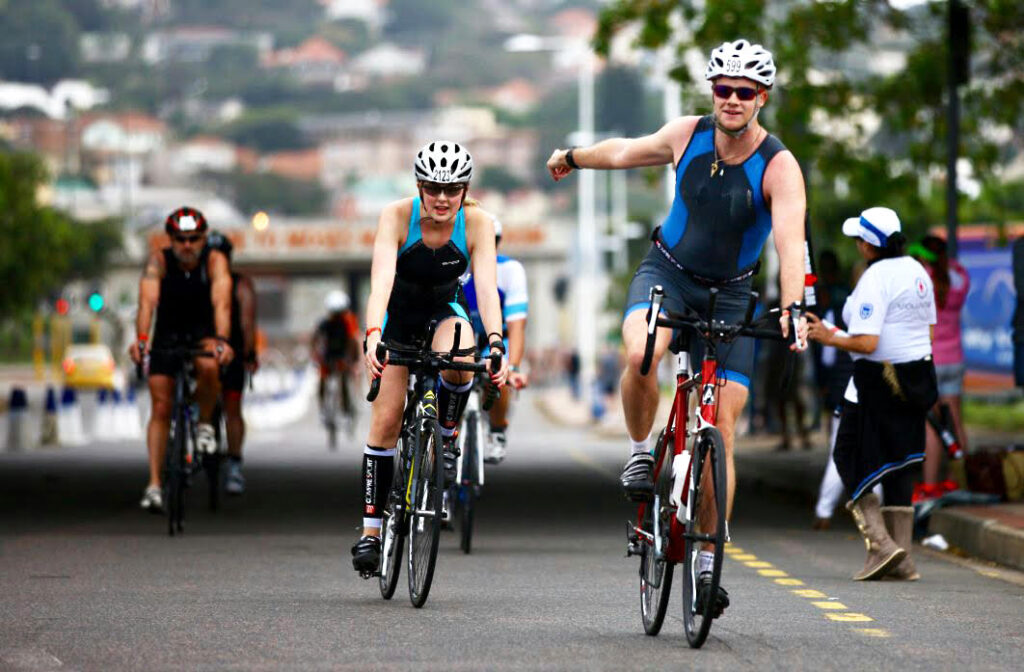
Since severe complications lie on either side of the scale, managing diabetes is a constant balancing game to find this 72-144 mg/dL4-8 mmol/L sweet zone. This is challenging on your average day, then add in three forms of exercise, a dash of adrenaline and your blood glucose requirements are completely out of whack. To help, I use a special device called Dexcom which is continuous glucose monitoring (CGM) system which reads my blood sugars every five minutes.
For race day of 70.3 Ironman Durban, I had two nutrition plans. A plan structured around low blood glucose which involved carbohydrates and gels as well as a plan for if my blood sugar surged high, which included low blood sugar, low carbohydrate alternatives from Keto Sports Nutrition. Confidence comes in the form of preparation. Everything else on race day was beyond my control. I had a low carb dinner the night before so that my blood sugar levels stayed in range while I slept and to ensure waking on a good blood sugar.
Breakfast was a smoothie comprising of a carefully measured 20 grams of carbohydrates. I injected 4 units of insulin, a higher dose than normal, but I expected my nerves and adrenaline to shoot my blood sugar high.
I arrived at transition with the perfect blood glucose reading, celebrating with little inside victory dance and a few childish, internal cheers: “Nailed it, Trace you the bomb, Diabetes you lose, I win.” To which diabetes casually smirked, “Oh really?” Within 15 minutes of arrival the nerves hit, adrenaline and cortisol pumped around my body and my blood sugars shot to 252 mg/dL14 mmol/L and continued rising.
Diabetes: 1 Tracy: 0
With limited time until the start, I injected 3 units of insulin, popped my CGM device and insulin injections on the “medical” table that stands at the front of transition, suited up and headed to the beach, and just prayed to the Diabetes Gods.
The most poignant moment of 70.3 was running into that dynamic, golden ocean. The sun breaking on the horizon, the frothing waves illuminated silver and yellow. Every single concern was forgotten and I could not contain a giggle and smile as the true beauty of the morning unfolded. The water was phenomenal, my wetsuit the ideal floatation device and the buoys perfectly visible.
After slogging up thick sand to transition, I grabbed my CGM off the table and in the pure breathless panic of sand and wetsuit, did a finger prick and manually tested my blood sugar—an acceptable 144 mg/dL8 mmol/L. I injected 2 units of insulin in order to be able to eat along the bike course, popped my helmet onto my head, sandy feat in cleats and headed off excitedly on my noble steed. I have a bag on the frame of my bike which kept all my nutrition, tester and insulin together.
Diabetes: 1 Tracy: 1. The playing ground was levelled.
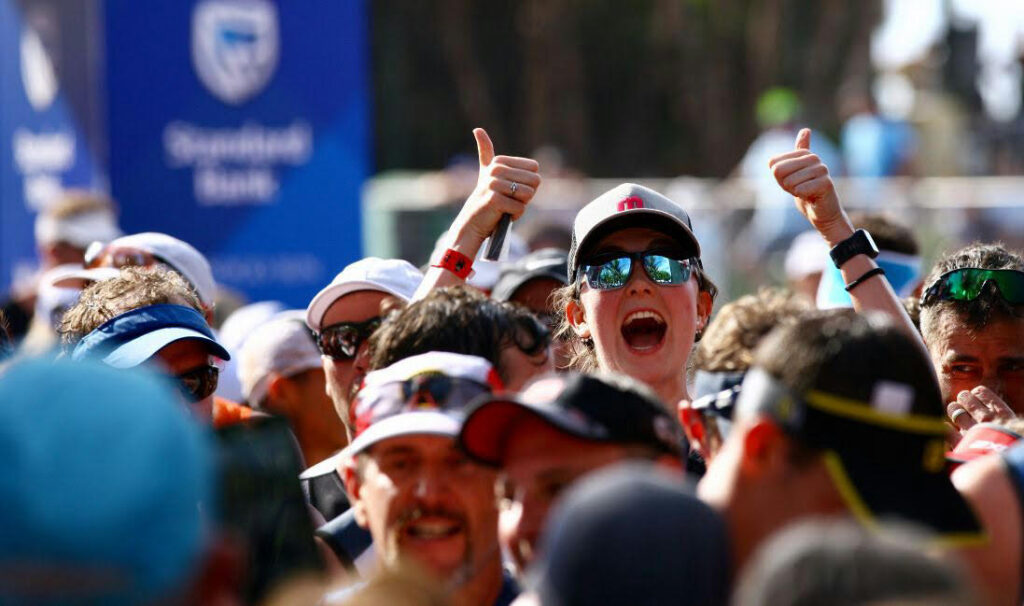 Diabetes can be an overwhelming mental game. An abnormal blood sugar is a great mimicker of normal sports related feelings such as fatigue and weakness. You can be plagued with constant doubt, “Am I buggered because I pushed too hard or is my blood sugar high or low?”
Diabetes can be an overwhelming mental game. An abnormal blood sugar is a great mimicker of normal sports related feelings such as fatigue and weakness. You can be plagued with constant doubt, “Am I buggered because I pushed too hard or is my blood sugar high or low?”
Additionally, I could be feeling like a million bucks, only to discover a terrible blood glucose reading that automatically prompts my mind to decide that my body is broken. Throughout the bike course I looked at my CGM every 15 minutes ensuring that I was in range and ate accordingly. Thankfully, I didn’t have to stop to inject insulin along the bike route, and my blood sugars stayed tightly between 126 and 144 mg/dL 7 and 8 mmol/L.
I couldn’t eat on the run as my blood sugar was on the higher end of normal and didn’t show any signs of dropping. I didn’t carry any insulin on the run as I thought my blood sugars would quite quickly decline. I simply drank water along the 21.1km and indulged in every icy-cold sponge I came across. I finished on a blood glucose level of 108 mg/dL6 mmol/L in a time of 05h55. Throughout my life I am sure diabetes will provide a multitude of challenges, losses and victories. But I feel it’s safe to say:
Diabetes: 1 Tracy: 2
Diabetes—I won this one, bro.
Read more form runners of the TCS New York City Marathon.
To learn more about the 2019 TCS New York City Marathon Beyond Type Run team click here.

Author
Tracy Sanders
Tracy is a 25-year-old who is studying for a Bachelor of Medicine and Bachelor of Surgery at University of the Witswatersrand. She attended Crawford College Sandton for her undergraduate work. She will be running in the 2018 TCS New York City Marathon with Beyond Type 1. She lives in South Africa.
Related Resources
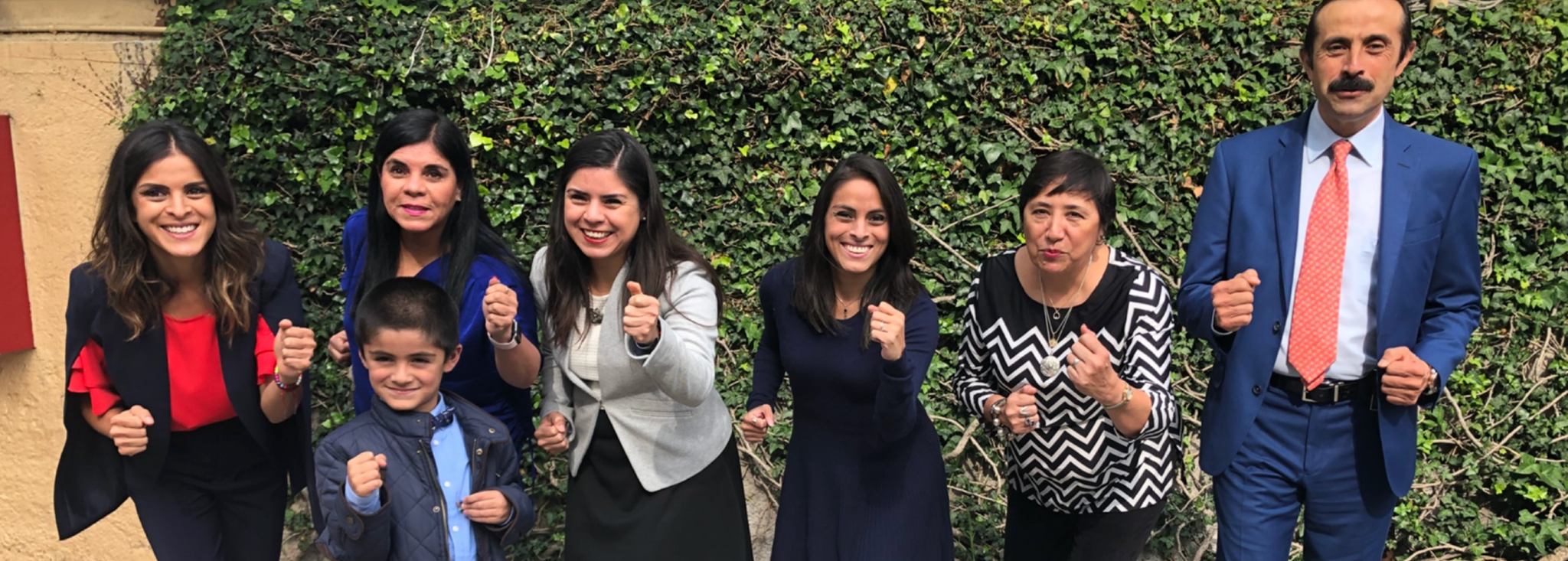
Editor’s Note: Gabriela was a member of Beyond Type Run's 2018 TCS New York City Marathon...
Read more
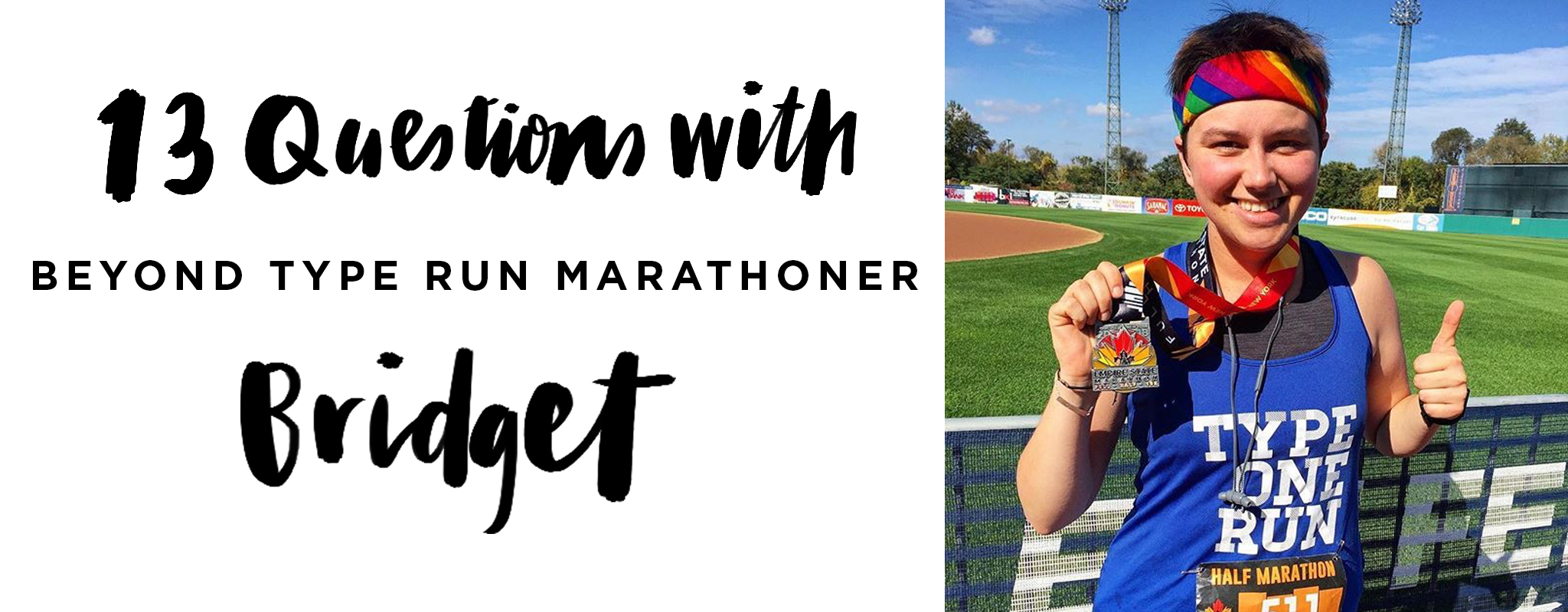
Editor’s Note: Bridget was a member of Beyond Type Run's 2018 TCS New York City Marathon...
Read more
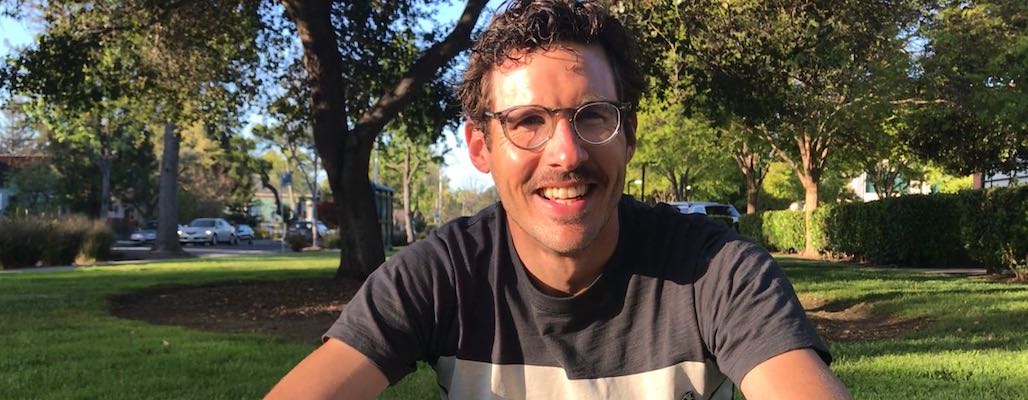
Editor’s Note: Romain was a member of Beyond Type Run's 2018 TCS New York City...
Read more

